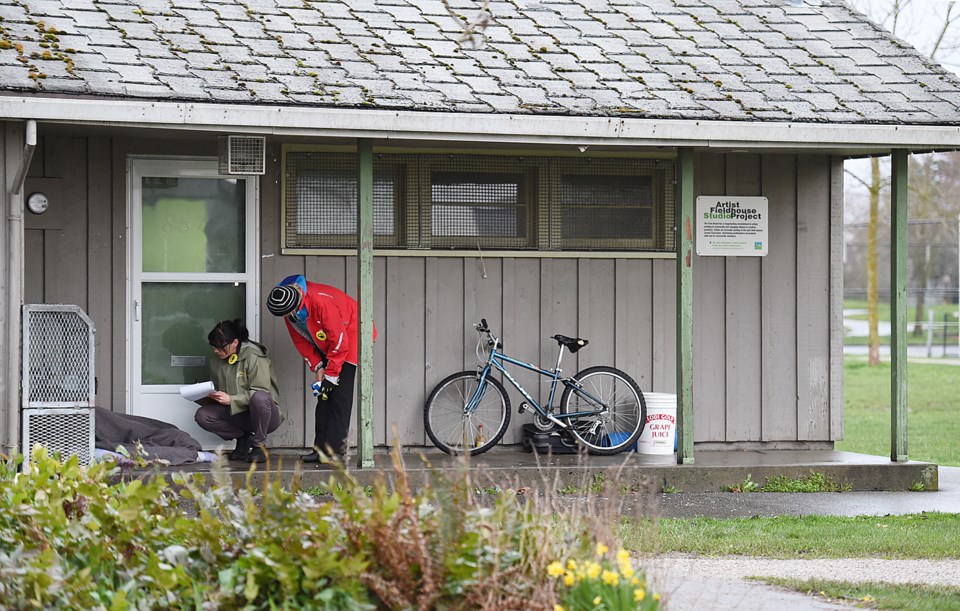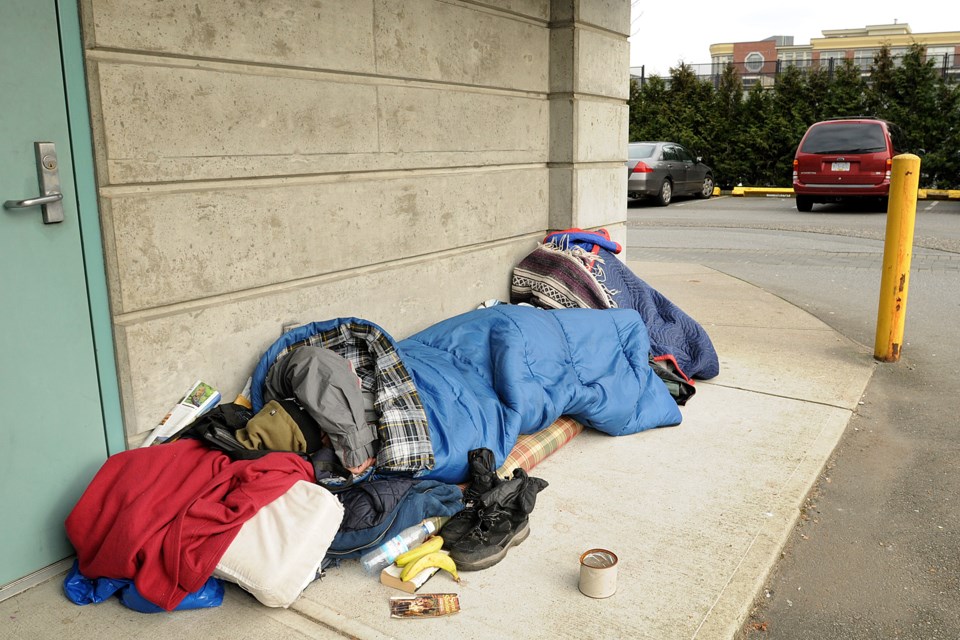Volunteers heading out next week to participate in an Indigenous homeless count across Metro Vancouver are not likely to see a decrease in the number of Indigenous people living on the street and in shelters.
That’s the conclusion of Dave Baspaly of Infocus Management Consulting, which is working on behalf of Lu’ma Native Housing Society to coordinate the count of Indigenous homeless people March 13 and 14 in Vancouver and across the region.
“My sense is--from what I know--is that it’s going to be equally as bad, if not worse,” said Baspaly, who pointed to high housing costs as a factor in his prediction. “Every time the price of homes goes up, or the price of rent goes up, it destabilizes peoples’ ability to find affordable housing. Everybody is displaced and it disproportionately hits our community like no other community.”
Further evidence of Baspaly’s prediction is found in a report based on the findings of Metro Vancouver’s 2017 homeless count. Data collected from volunteers showed Indigenous people were overrepresented among the homeless population, with 34 per cent without a home—a statistic more startling when factoring in Indigenous people in Metro only account for 2.5 per cent of the population.
Other contributing factors to homelessness, the report noted, were intergenerational trauma associated to colonization and residential schools, racism, the impact of child welfare and foster care systems, dependence on drugs and alcohol and hardship Indigenous people face after moving from their home communities to urban centres.
Infocus is overseeing 125 volunteers – all of whom are Indigenous – who will spread out across Metro to find and count Indigenous people on the street and in shelters. Though the goal is to count Indigenous people, Baspaly said all homeless people will be recorded.
That data – and personal information collected from volunteer surveys -- will be shared with the City of Vancouver, which is conducting a separate Vancouver-only count on the same dates. The city will, in turn, share its information on Indigenous homeless people. Both groups will ensure there is no overlap in the data.
“We count who we count,” said Baspaly, who is a member of the Eastern Woodland Metis Nation of Nova Scotia. “So the mainstream counters will count Aboriginal people, we’ll count mainstream people. The idea for us is to take advantage of the knowledge base of the Aboriginal people -- where they live and work in the community -- to be able to move into those spaces [on the street and in shelters].”

The Vancouver-only count will see upwards of 400 volunteers take to the streets next week. As of Wednesday, 30 to 50 volunteers were still required for the count, which begins in shelters in the evening and continues on the street the following day.
Vancouver has conducted a count for more than a decade and will coordinate efforts when Metro Vancouver conducts a count every couple of years. Vancouver did that in March 2017 and the data showed 2,138 people were homeless in Vancouver, with 537 living on the street.
That was the highest homeless population for Vancouver ever recorded in the counts.
Whether that total will be surpassed is difficult to predict, according to Ethel Whitty, the city’s director of homelessness services. But what Whitty does know is the city found homes for about 1,700 people over the past two years, although not all were living on the street.
Whitty said the city moved a combination of people from the street, shelters and those at risk of losing their home into single-room-occupancy hotels, social housing and housing that offers various supports for health care and counselling needs.
Only a few were moved into market housing.
Whitty wanted to make it clear that people with children who may have just lost a job and are behind in rent and at risk of losing their accommodation should contact the city for help.
“I think sometimes people are afraid to come for help—they’re really afraid they will lose their children, if they have nowhere to live and that’s not the way it works,” she said. “If they’re able to care for their children, everyone is going to pull together to find them a place to be.”
The city is counting on 600 temporary modular homes, which are all supposed to open before the end of the year, to help reduce the number of people living on the street. But only two buildings that comprise a 78-unit complex in Marpole are expected to be open before the count.
“It’s going to make a big difference in the homeless count in 2019,” said Whitty of the modular homes, which will be built across the city.
In the meantime, a combination of year-round and temporary shelters that total about 1,000 beds remain at capacity, said Whitty, adding that the city’s three community centres that double as “warming centres” on cold nights have seen upwards of 95 people on a single night.
People are also living in vans, recreational vehicles and cars. Whitty told the Courier in a separate interview in February that her department’s outreach team has been in touch with “a couple hundred” people in Vancouver over the last two years who were living in vehicles.
Though she acknowledged some people have chosen to live in an RV, others are hanging on to their cars because—in many cases--it is the only possession keeping them from a life on the street. Those people are recorded as “street homeless” during the count.
“Of course, there’s quite a big difference if you’re living in an RV, and if you’re living in a Toyota,” she said. “That’s a very different situation and much more frightening for someone. If you’ve chosen to buy and RV and live in it, you can be quite comfortable.”
A preliminary report on next week’s Vancouver-only count will likely be presented to city council sometime before the summer.
Note: People interested in volunteering in the Vancouver-only count can get information on the city's website
@Howellings



